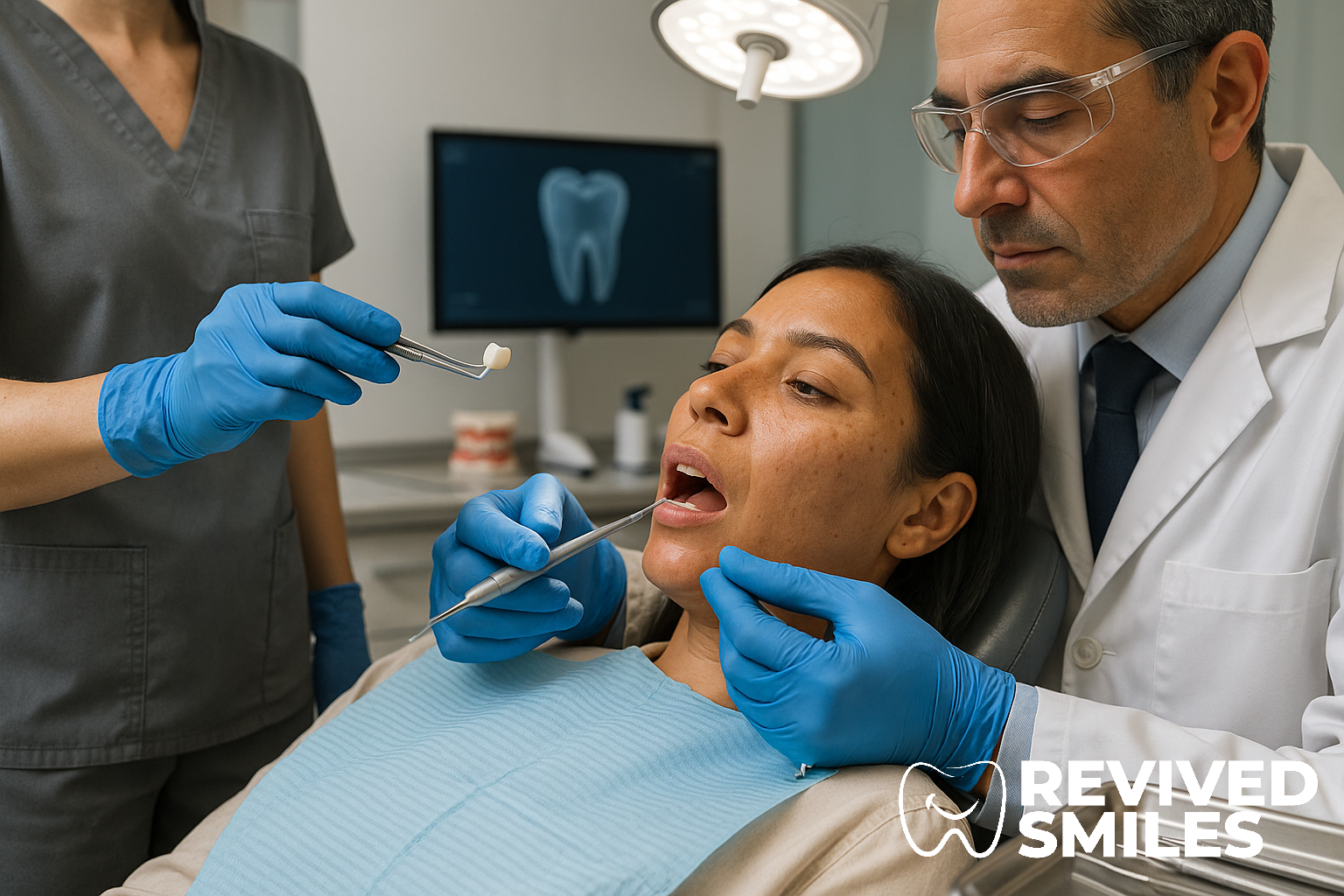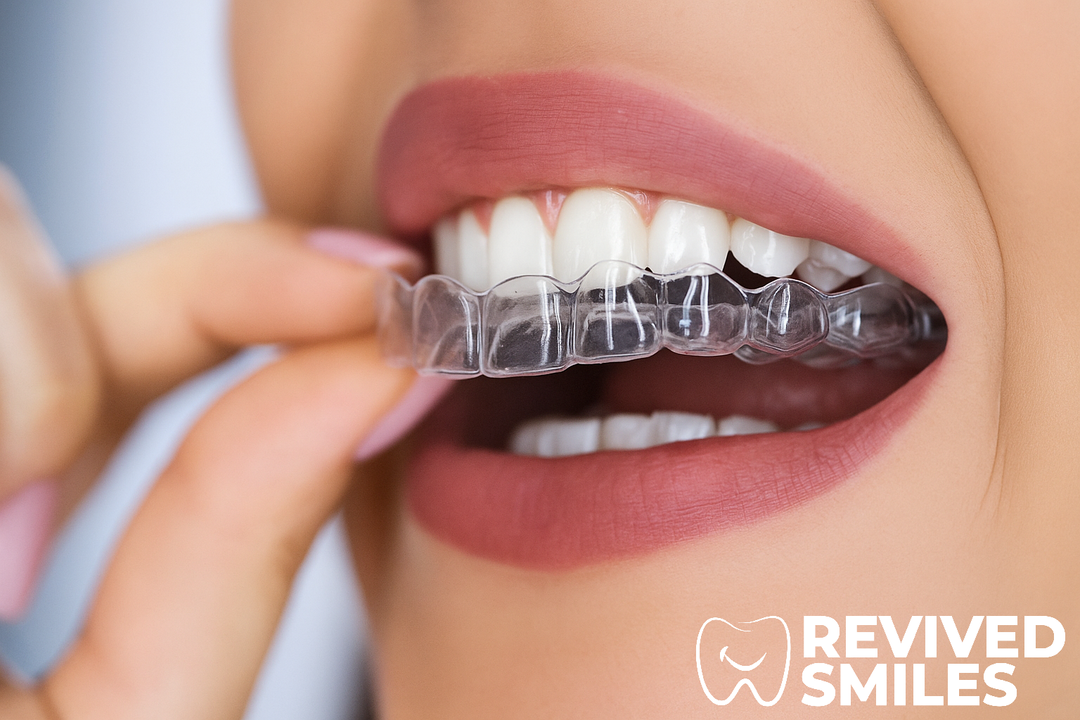Dental Crowns vs Veneers: What’s the Difference?

If you’ve ever stared into a mirror and wished for a straighter smile or a way to fix that mildly chipped tooth, you’re not alone. Many of us explore dental treatments to improve not just our oral health, but our physical appearance and self-confidence.
Crowns and veneers are two common dental treatment options that can enhance both the function and aesthetics of your teeth.
Understanding the key differences between veneers and crowns can help you choose the right solution for your needs.
Let’s break down the veneers vs crowns conversation in a relatable, easy-to-understand way, from crown material to cost, function, and everything in between.
What Are Veneers?
Dental veneers are a popular choice in cosmetic dentistry, especially for enhancing the look of front teeth. These are custom made shells, typically crafted from porcelain or composite resin, that are tailored to fit each patient and bond to only the front surface of the tooth.
Veneers involve bonding a thin layer of material to the tooth surface. They’re commonly used for cosmetic purposes, such as improving color, shape, or spacing.
Porcelain veneers are known for their durability, stain resistance, and natural appearance. A porcelain veneer is a thin layer of porcelain bonded to the tooth for cosmetic enhancement.
Composite veneers offer a more budget-friendly option, though they may not last as long. Veneers can also be used to close slight gaps between teeth, improving smile aesthetics. Dentists carefully match the same shade of veneers to your natural teeth for a seamless look.
Veneers cover only the front surface and require minimal enamel reduction, making them a more conservative choice for cosmetic improvement.
The placement process is straightforward. Your cosmetic dentist gently removes a small portion of the tooth enamel, takes a mold of the prepared tooth, and applies a temporary veneer.
Once the permanent version is ready, it’s bonded securely to the tooth for a beautiful, seamless look. Dentists may recommend veneers for patients seeking cosmetic improvements with minimal tooth alteration.
What Are Dental Crowns?
Dental crowns, often referred to as teeth crowns or a tooth-shaped cap, serve a broader purpose than veneers. A dental crown covers the entire tooth, making it an ideal solution for a damaged tooth with significant damage, a broken tooth, or those needing restoration after root canal treatment.
Crowns are often placed after root canals to protect the tooth and restore its strength and function. In cases where one tooth has extensive damage or decay, a crown can be used to restore that individual tooth.
Crowns can be made from porcelain, metal alloy, zirconia, or porcelain fused to metal. Porcelain crowns offer a more natural tooth look, while metal crowns provide strength for back molars.
The crown material chosen often depends on the location of the tooth and the desired balance between strength and aesthetics. The amount of tooth structure remaining is an important factor in determining whether a crown is needed, as crowns typically cover more compromised or reduced tooth structure for added support.
Compared to veneers, crowns generally require more alteration of the natural teeth, while veneers are more conservative and suited for cosmetic improvements.
The process is more involved than veneers. After addressing any issues like tooth decay or gum disease, your dentist assesses the health of the existing teeth before reshaping the original tooth to accommodate the crown. A temporary crown is placed while your permanent crown is custom-made.
Once it’s ready, the crown is cemented onto the existing tooth, fully restoring the functional tooth surface. This type of dental work restores both function and appearance.
Veneers vs Crowns: What Sets Them Apart?
When it comes to dental crowns vs veneers, several key factors come into play.
Coverage
Veneers cover only the front surface, while crowns encase the whole tooth. Because a dental crown covers the entire tooth, it's more suitable for structurally compromised or decayed teeth.
Tooth Preparation
Veneers require less tooth enamel to be removed, this minimal enamel reduction is one of their biggest advantages. Veneers preserve more of the natural tooth structure compared to crowns, which require more removal of tooth structure. Crowns require more extensive reshaping, especially for severely damaged or weakened teeth.
Durability and Strength
Both crowns and veneers are durable, but crowns tend to outlast veneers, especially on teeth used for heavy chewing. Crowns are a better choice for restoring a weak tooth or one that has undergone root canal therapy.
Aesthetic Outcome
Both crowns and veneers offer a natural appearance, but cosmetic veneers are specially crafted for aesthetic enhancement. Porcelain crowns can also look incredibly lifelike, especially when placed by a skilled cosmetic dentist. Both crowns and veneers can be crafted in the same shade as your natural teeth, ensuring a seamless and consistent appearance.
Pros and Cons of Veneers
Pros
-
Less invasive with minimal enamel reduction
-
Ideal for cosmetic improvement of front teeth
-
Natural appearance, especially with porcelain veneers
Cons
-
Not suited for damaged teeth or those needing structural support
-
May not be covered by dental insurance
-
Can chip or crack without proper care
Pros and Cons of Crowns
Pros
-
Full coverage restores both function and aesthetics
-
Strong and long-lasting, especially with porcelain fused or metal crowns
-
Often covered by dental insurance when medically necessary
Cons
-
Requires significant reshaping of the existing tooth
-
Potential for initial tooth sensitivity
-
Slightly more invasive than veneers
Veneers vs Crowns Cost: What Should You Expect?
Crown cost and veneer pricing vary depending on materials and complexity. Dental crowns usually range from $1,000 to $3,500, depending on crown material. Veneers typically fall between $900 and $2,500 per tooth.
Insurance is another key factor. Dental insurance often covers crowns if they’re used to treat decayed teeth or following a root canal. Veneers, used mainly for cosmetic purposes, are usually not covered.
Longevity and Maintenance Tips
With proper care and oral hygiene, both crowns and veneers can last well over a decade. Porcelain veneers average 10 to 15 years, while porcelain crowns can last 15 to 20 years or longer. Regular maintenance of your dental work is essential for longevity.
Good maintenance includes brushing twice a day, flossing regularly, and avoiding hard or sticky foods. It is important to remove food particles from around the gum line and dental restorations to prevent decay and plaque buildup.
Pay special attention to cleaning along the gum line where crowns and veneers meet the natural tooth. Regular visits to your dental clinic help ensure long-term success and allow early detection of any issues under the crown or veneer.
When to Choose Veneers vs Crowns

The right treatment depends on your specific needs, the condition of the tooth, and your smile goals. Crowns are typically recommended when you have a damaged tooth that requires structural support.
Choose Veneers If:
-
You have mildly chipped teeth, gaps, or discoloration
-
Your teeth are structurally sound
-
You're looking for a cosmetic improvement without major reconstruction
Choose Crowns If:
-
The tooth has extensive decay or damage
-
You've had a root canal and need to protect the tooth's pulp
-
You're restoring multiple teeth or replacing a large filling
In the veneers vs crowns decision, consider the purpose, cosmetic vs structural. Veneers are ideal for a straighter smile with minimal changes, while crowns are often required when oral health or function is at stake.
Porcelain Veneers vs Crowns: How Do They Compare?
Porcelain is a go-to material in cosmetic dentistry because gums tolerate porcelain well and it mimics natural tooth translucency. Porcelain veneers are less invasive and designed for visual enhancement, while porcelain crowns are more robust and serve both functional and cosmetic purposes.
If the original tooth is mostly intact and you want cosmetic results, veneers are the way to go. If the tooth is broken, weakened, or has undergone a root canal, a crown is likely the better solution.
We’re Here to Help You Decide
Choosing between dental crowns and dental veneers isn’t always black and white. It depends on several factors: the extent of damage, the location of the tooth, your desired outcome, and even budget.
At Revived Smiles, we guide you through every option, from dental implants and dental bridge work to flexible partial dentures and more. Our expert team ensures your treatment aligns with your long-term oral health goals.
Let’s work together to create the smile you deserve.
FAQs
What is the main difference between veneers and crowns?
Veneers cover only the front surface of the tooth for cosmetic purposes, while crowns cover the entire tooth for both function and appearance.
Are crowns better than veneers?
It depends. Crowns are better for structurally damaged or decayed teeth. Veneers are best for cosmetic improvement on healthy teeth.
Which lasts longer, a veneer or a crown?
With proper maintenance, crowns usually last longer than veneers, especially under pressure.
Do veneers and crowns look the same?
Both can offer a natural appearance, especially when crafted from porcelain.
Can you get veneers instead of crowns?
Yes, but only if the tooth is structurally sound. A broken tooth or one with extensive decay usually requires a crown.
Which is cheaper: veneers or crowns?
Veneers may cost slightly less upfront, but crowns may be covered by dental insurance.
Are crowns more durable than veneers?
Yes, especially for restoring the functional tooth surface.
Is getting veneers painful compared to crowns?
Veneers typically involve less tooth preparation, making the procedure less invasive.
Can veneers or crowns fix a chipped tooth?
Yes. Veneers can fix mildly chipped teeth, while crowns are better for larger damage.
What is better for front teeth, veneers or crowns?
Veneers are ideal for cosmetic fixes on front teeth. Crowns are used when structural support is also needed.
Wrapping It All Up
Making the right decision between veneers and crowns is about more than just aesthetics, it's about long-term health, comfort, and confidence. Whether you’re addressing a weak tooth, a large filling, or you’re dreaming of cosmetic veneers for a straighter smile, understanding your options is the first step.
Still unsure? That’s what we’re here for. Reach out to Revived Smiles and let’s explore the best solution for your unique smile together.





Leave a comment